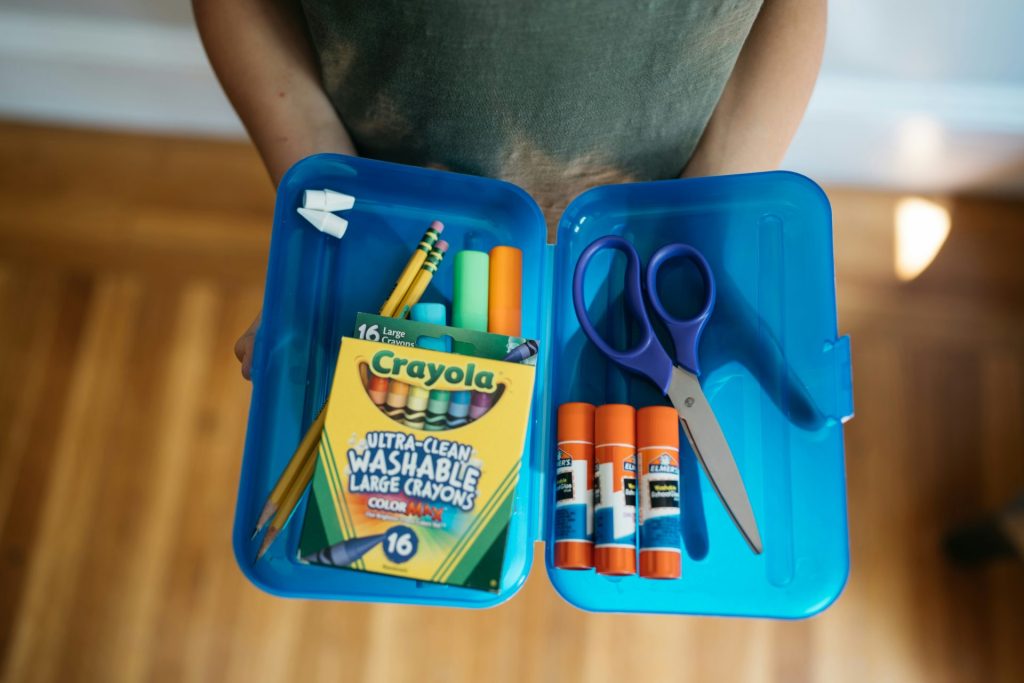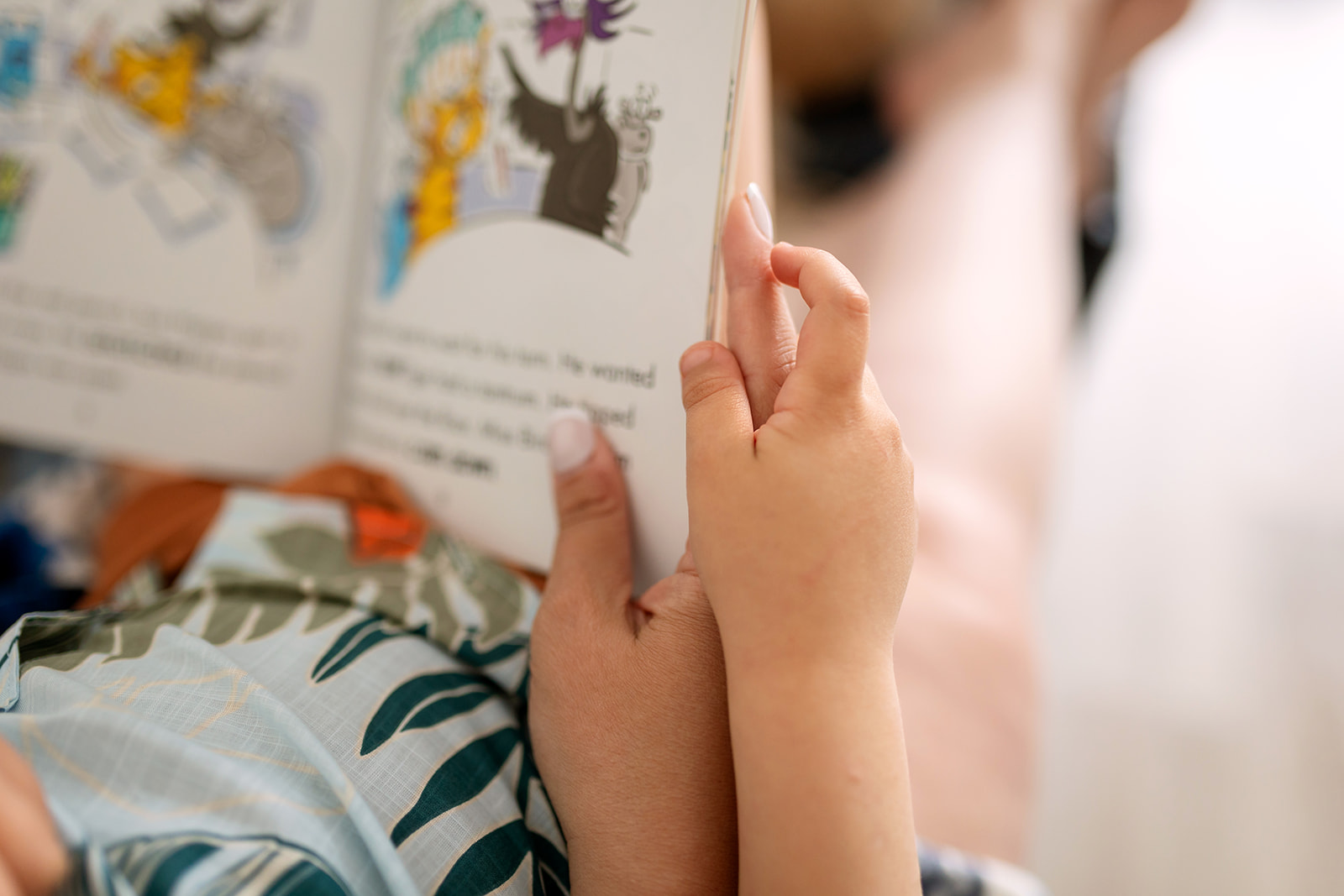I can still remember my first morning starting big school as if it was only yesterday, thebutterflies dancing in the pit of my belly, the smell of the morning air, and the sheer excitement, sure I didn’t sleep a wink the night before. My head was spinning with questions. Starting back to school is a big deal for the whole family. That first month in September is full of new learnings, unlearnings, excitement, possibilities, and a lot of hard work. So, if worry or anxiety is starting to creep in, that is all very normal too.
Here are our top 6 Back to School Confidence Boosters for Parents
1. Talk About School
Share your favourite memories about school with your child. Talk about the games you played in the yard, the rules in your classroom, the songs that you sang together, what you liked about your teacher, and who were your friends. This is very re-assuring for your child to hear that you too were that age once and you know how they are feeling and what it is like to start school.
It can be during these more relaxed times that your child is more willing to share. The best chats with kids never happen when we bombard them with questions. They tend to come in more relaxed, quiet moments like these.
Your child might express some worries or anxieties about school. It is difficult to hear this but try to give your child the space to express themselves and not to go into problem solving mode. It is hard not to do that as parents. But you want your child to tell you when they do not feel okay so the more you allow them space to express themselves the more they will feel confident and secure in sharing any worries with you
If an issue persists, ask another parent about it, talk to a close friend, or reach out to the school. Chances are someone else has already experienced this.

2. Make the prep for school fun and adventurous
Playing and pretending comes natural to every child, so why not make starting school fun and playful too. This approach will ease the transition to starting back at school more adventurous and exciting.
- Play “school” or first day of school: You could role-play being the teacher and student and taking turns with the different roles. Or you could line up all the teddies, cars and dolls as students. Mom could be the school principal and you play the teacher. Role-play a few times and talk about the different scenarios, roles, and what might happen at lunch-time, playtime, home-time etc;
- Get your school bag, and pack everything that you will need on a school morning. Have a go at opening your lunchbox and getting it back into your bag. Get your pencil case and other supplies you will need. See you if you can get your bag on your back and close your coat. Have a few goes. Time yourself. Go as fast as you can, then as slow as you can, and then in normal speed
- Create a countdown poster with fun activities and treats each day
- Create a poster: First month at school
- Mark the small milestones together like making a friend, completing a week at school, or a month
- Maybe celebrate one month at school with a special family movie night or dinner.
Other lovely ways can support your child’s development in lots of key skills that will help them: - Matching games, puzzles, colouring books with alphabet, counting, making friend themes, shapes, picture
- jewellery making, bead making, lego, potions, reading together, singing together, dancing together.
This time together is priceless and it really will build your child’s confidence and self esteem.
3. Reading Books about starting school
Starting School and starting back at school can conjure up a range of emotions from fear of the unknown, to separation anxiety to a lack of confidence for children. When we read books to children they have the ability to re-image the stories with their finite imaginations, and gain a deeper understanding into the emotions of the characters. Reading offers the opportunity to look at the unique characters in the stories and to talk about them.
Two great storybooks to help you explore how your child is feeling and help them prepare for starting school: Owl Babies and The Invisible String
- Show your child the cover of the book and ask them, “what do you think this is about?”
- Allow the children to turn the pages?
- When the character is sad, you can ask your child “when is a time you felt sad?”
- What do you think they should do?
- You can ask your to repeat some lines or sentences the different character say
- Where do you think Moma Owl is gone?
Draw a picture together of what your special invisible string looks like and when you might use it? Talk about Love. Make posters with Love as your theme. Hang them up in your kitchen/bedroom.
These books are a lovely way to connect with one another on the lead up to starting school and those first 6 weeks. Try to read regularly to ease your child’s worries and to give them confidence in their own ability to be happy at school and that you will always come back and collect them.
Flower Breathing:
● Ask your child what their favourite flower is?
● Ask them to image they are holding this in their hand
● Can you see it?
● Take big sniff of its scent.
● Encourage them to take a deep breath in through their nose, as if smelling the flower.
You can do a giant sniff, a soft sniff, a regular sniff, etc.
● Repeat this a few times, focusing on the rise and fall of their belly.
● Ask them how this feels afterwards
Birthday cake
● When is your birthday?
● What cake will you get?
● How many candles?
● Let’s pretend we are blowing out all candle on your cake with a long, slow exhale
through their mouth.
● Next do 100 candles on a cake belong to …
● Next do a baby cake with 2 candles
● Next guess how many candles as your guild blows out the candles
● This is a real fun one as they can quickly image doing this.
● Repeat this a few times and have fun together
● Ask them how this feels afterwards
You do not want to force these on your child. A gentle introduction of 30 seconds each day is perfect. Keeping the techniques fun, playing and easy will engage your child and make your child want to engage more with this exercise. Practice everyday because when the time arises and you need your child to do some heavy breathing, when they are upset, you can regulate your child’s emotions more quickly and gently by working together. Breathing exercises for kids should be fun, playful, and easy to do. Showing your child how to take a breather, whether they are angry, worried, over excited, or feeling overwhelmed can really assist in grounding them in every situation.

5. A good routine starts the night before
A structured morning routine for the school year takes a lot of time, patience, and flexibility on your part. Sometimes, what we think will work might all go belly up. You need to be resilient, patient, and flexible. It would be very easy when things go belly up to just give in and go back to the way things were in the morning time, not knowing and hoping there would be no tantrums etc. . But hang in there because after a few weeks you will not know yourself. The whole family will operate more smoothly in the morning time, even when things do come up that we were not expecting.
This structure and routine and sameness every morning will give your child confidence, help them feel more prepared for their school day and ease any worries or anxieties that might have.
Why not make this a family project? Get out all the art supplies and make a fun personalised timetable into a chart for all the family’ s needs in the morning. You could discuss what time you need to wake up at? How much time needs to be allocated to getting dressed, eating breakfast, brushing teeth etc. Children do not do well being rushed in the morning time. This can cause huge anxiety so make sure to leave plenty of extra time because things always come up in the morning that we were not expecting. Then hang your family chart in in the kitchen so that everyone can see it and has access to it at all times. Opening up to the whole family in this way gives everyone involved in the discussion, and therefore everyone feels valued, heard, and understood. Be patient with yourself and your child and try to be flexible, and to adjust the routine as you learn what suits your child and your family best. Getting your child involved in the planning and preparation for the school morning routine can be fun and it gives your child ownership in their decisions. This can be incredibly empowering in fostering responsibility, helping them to develop decision making skills, and to feel more confident in their own abilities, and this leads into a happier whole school experience.
6. Organising School LunchesTake your child shopping for their lunch box. Make decisions together about what might work well. For that first month in school you could surprise them with one or two healthy treats you know they like. By allowing your child to make small decisions, and offering them choices gives them ownership in their decisions.
Adrienne Lee, a specialist educator in drama, theatre, and performance with over 20 years of experience in the sector; And PlayAct Drama School is her brainchild. She and her team are fully qualified drama facilitators and educators. All our staff are fully Garda vetted and certified in the TUSLA Children’s First programme. Explore more HERE











